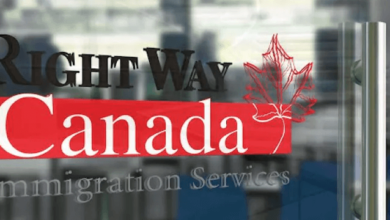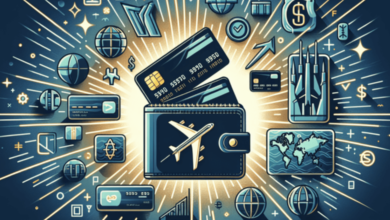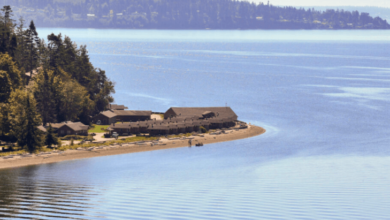Business Travel 101: Everything You Need for Your First Work Trip

Particularly if it’s your first time, business travel can present an interesting prospect. A work trip combines professional objectives with the opportunity to see new locations whether your travel is to a client meeting, conference, or foreign country transaction closing. Business visitors frequent France because of its mix of rich culture, famous sites like Paris and Lyon, and busy corporate centers.
Though a business trip sounds to be thrilling, it also calls for thorough preparation. Being ready guarantees a flawless and efficient experience from packing to scheduling management. Maintaining connection is absolutely crucial. Checking emails, scheduling virtual meetings, or negotiating foreign streets all depend on dependable internet connection. By allowing you access to local data plans instead of a real SIM card, using ESIMFRANCE.com can streamline your journey. It’s the hassle-free approach to keep online all during your journey in France.
1. Preparing for Your First Business Trip
Organizing Your Travel Documents
First, compile all required records. Verify that your passport is valid at least six months past your planned trip. See whether you require a visa if you are going to France. Many nations do not demand a visa for short business trips, although it’s always advisable to confirm.
Save digital and hard copy versions of your itinerary, hotel bookings, and any meeting schedule. Save these conveniently on your phone or on a cloud service. Bring also a paper copy of any presentation tools in case of technical problems.
See also: Fitness Training Services for Tailored Workouts and Health Plans
Packing Smart and Light
Effective packing changes everything for business travel. Choose adaptable clothes you can mix and match, including a blazer fit for meals and meetings. Add cozy shoes for walking; commercial districts in places like Paris can call for a fair amount of walking.
Not forgetting basics like your laptop, chargers, and a power bank is Since electrical outlets in France run Type C and E plugs, pack an adapter if necessary. At the airport, packing light also saves time—especially if you can manage with only a carry-on bag.
Pre-Trip Research
A little knowledge of your destination will help much. Knowing local customs will enable you to fit France. A respectful “Bonjour,” for instance, comes before beginning a conversation.
To honor the culture, pick up simple French words like “Merci,” (thank you) and “Excusez-moi,” (pardon me). See the weather prediction to pack correctly. If your trip falls in winter, carry a cozy coat for Paris morning cold.
2. Navigating Business Travel Logistics
Booking Accommodations and Flights
Selecting appropriate lodging is rather important. Search for lodging near your conference venues to cut travel time. Amenities including dependable Wi-Fi, conference rooms, and early breakfast choices abound in business-friendly hotels.
Try to pick direct paths wherever you can when making airline bookings. Particularly if you have a packed agenda upon landing, long layovers might cause tiredness. Charles de Gaulle Airport is the main international gateway if you are heading to Paris; it boasts first-rate transportation to the city.
Planning Transportation
Particularly in bigger towns like Paris and Lyon, France boasts first-rate public transit. For short trips, use the subway; for extra convenience, reserve cabs or ridesharing apps like Uber. If your meetings are scattered over several cities, you might want to take advantage of France’s high-speed TGV. Fast, cozy, and effective they are.
Renting a car can be more sensible for those exploring beyond the major commercial centers. Local driving policies like parking rules and speed restrictions should be clearly understood.
Managing Connectivity
For business travel, staying in touch is not negotiable. Although many hotels and cafés have free Wi-Fi, public networks might be dangerous or erratic. An eSIM guarantees safe internet
connectivity anywhere you go, thereby enabling you to remain constant in productivity free from interruption.
3. Maximizing Productivity During the Trip
Setting a Work Routine
Maintaining a work schedule when on travel might be difficult, but it’s crucial to keep on target. Set aside time for email responses or conference preparation during travel or downtime.
If your calendar is packed, rank chores according to significance. Mark reminders for meeting times and give extra travel time to cover unanticipated delays.
Staying Organized
Track meetings and deadlines by using Microsoft Teams or Google Calendar. Especially in case of last-minute adjustments, digital tools enable you to remain current. Bring a little notebook to scribble notes on ideas or important points in discussions.
Once you’re back, a dedicated folder for receipts and invoices also helps you to submit expense reports more quickly.
Overcoming Jet Lag and Staying Energized
Particularly if you are changing time zones, jet lag might compromise your output. Try napping on the plane or staying awake until local bedtime to fast adjust with regard to local time.
Eat light dinners, drink plenty of water, and cut back on coffee to prevent energy lapses. Short walks during breaks can also keep you invigorated.
4. Making the Most of Your Downtime
Exploring Local Attractions in France
France presents several chances for relaxation following a long day at work. See sites include the Eiffel Tower, Louvre Museum, and old Notre Dame Cathedral in Paris. If you’re in Lyon, tour its Old Town, which boasts a thriving cuisine culture and Renaissance architecture.
To really appreciate French culture, wander beside the Seine River or stop by a neighborhood café. These times might help your trip feel less like business and more fun.
Networking Opportunities
Networking does not have to limit itself to official gatherings. France hosts conferences, trade exhibits, and business events quite a bit. See whether your journey coincides with any pertinent events where you might run across business colleagues.
Apps like LinkedIn allow you to network experts in your area and set unofficial meetings over coffee.
Shopping and Souvenirs
Use your trip to hunt unusual goods. France boasts wines, gourmet chocolates, and fashion boutiques. If you have free time, look around neighborhood markets or department stores like Galeries Lafayette to get presents for relatives or colleagues.
5. Practical Tips for a Smooth Return
Organizing Expense Reports
Get all receipts for expenses including meals, transportation, and lodging before returning. Tracking and filing these reports can be made easier by apps like SAP Concur or Expensify.
Early budget organization guarantees you won’t miss any returns.
Reflecting on the Trip
Give your journey some thought. Note what went right and point up areas needing work. This introspection will enable you to better budget for your upcoming corporate travel.
Send follow-up letters or thank-you emails to colleagues or clients you crossed on the trip as well. Making business travel worthy depends on developing relationships.
Planning Your Next Business Travel
Remember those equipment or techniques you find useful on your future trip. Reusing an eSIM, for example, guarantees continuous connectivity on next travels and saves time.
Conclusion
Your first business trip marks an exciting turning point and, with enough preparation, it can be both profitable and fun. France presents the best of both worlds with its mix of commercial possibilities and cultural encounters.
You may confidently negotiate the difficulties of business travel by keeping neat, adopting local norms, and employing contemporary tools including eSIMs for connectivity. Keep in mind to use your leisure to explore and make lifelong memories. Your first work trip will be absolutely successful with these ideas.





